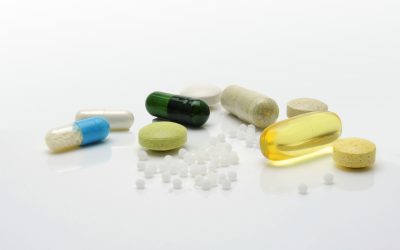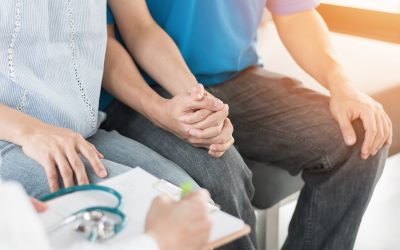Period Pain? What You Should Know
Suffering From Period Pain?
Many if not most women have experienced monthly pain at one point or another. In fact, 80% of women report experiencing period pain during their lifetime1. What might surprise many women to hear is that period pain is NOT always normal! Traditional Chinese Medicine holds that painful periods are a clear cut sign of liver burden and imbalanced hormones. From a conventional medical perspective, in 5-10% of women with pain, the pain is severe enough it disrupts their life, and warrants further medical investigation1. Period pain, medically known as dysmenorrhea, may be caused by a number of factors and is influenced by our diet, lifestyle, environmental exposure, genetics, and emotional and physical health. Our monthly pain can provide clues regarding our underlying health, as well as point to future fertility concerns. In other words, improving our monthly pain means improving our overall health and fertility too! Needless to say, period pain is not a symptom to be ignored!
The Difference Between Primary and Secondary Period Pain
There are two types of period pain (dysmenorrhea) you may be experiencing: primary and secondary. Figuring out which category you fall under can provide more insight into how you can manage and eliminate your monthly pain, as well as what kind of future risks it poses to your health! The best way to determine which category you fall under is to consider WHEN you started experiencing period pain.
Primary Dysmenorrhea
Primary period pain is pain that occurs without any pelvic abnormalities. The pain usually begins around the same time you first start experiencing your period. It typically worsens around 20-24 years of age, and decreases as you get older. The pain truly goes hand in hand with your monthly period, and is often easily relived with anti-inflammatory agents like Advil. Primary dysmenorrhea is considered “normal”. However, from a Traditional Chinese perspective, pain during your period is never normal. This type of monthly pain may indicate sluggish liver, imbalanced hormones, increased exposure to endocrine disrupting chemicals, poor diet and lifestyle, and inflammation. Women with primary dysmenorrhea often find relief from making dietary, lifestyle, and other health modifications.
Secondary Dysmenorrhea
Secondary period pain occurs as a result of some underlying pelvic pathology. Unlike primary dysmenorrhea, secondary dysmenorrhea usually worsens with age and typically begins after the age of 20. The pain is NOT limited to your period, and can start up to 2 weeks before, and last up to a week later. Secondary period pain is not easily relieved, and Advil is unlikely to reduce pain. This type of monthly pain is considered abnormal from both Chinese and conventional medical standpoints. The pain is a clear sign something more is going on. Examples of causes include endometriosis, adenomyosis, pelvic infections, ectopic pregnancy, and uterine fibroids, all of which negatively impact future fertility. Although dietary, lifestyle, and overall health modifications may help, more intensive treatments and a trip to your health care practitioner are typically required.
How You Can Manage Period Pain
Whether you are experiencing primary or secondary period pain, there are a number of changes you can make to your daily routine to improve your monthly pain! Not only will these changes provide you with some relief, but they will also provide a better foundation for your overall health!
Diet
When it comes to diet, there are a number of patterns that have been associated with period pain. Typically we want to opt for an anti-inflammatory, whole foods diet, similar to our Optimal Fertility Diet. Research has also shown a decrease in period pain with a mostly plant based diet2. Overall, we want to adhere to the following:
Decrease:
- Refined and processed foods
- Saturated and trans fats
- High sugar products
- Red meat
- Alcohol and caffeine
- EWG’s Dirty Dozen fruits and vegetables – if you want to consume these fruits and veggies ensure you are getting them from clean sources!
Increase:
- Healthy fats including avocados, salmon, and olive oil
- Foods rich in magnesium and calcium
- Foods rich in vitamin C
- Plant-based protein such as nuts, seeds, legumes, and grains
- EWG’s Clean 15 fruits and vegetables
Supplements
There are a number of supplements that have been shown to improve period pain when taken regularly. However, always consult with a qualified health care practitioner to find out WHICH supplements are most indicated for you! Remember, there is no one size fits all approach when it comes to health!
- Vitamins B1, B3, and B6: have all been shown to alleviate period pain in both primary and secondary dysmenorrhea3.
- Vitamin E just before and during menses has been shown to improve pain3.
- Magnesium: acts as a muscle relaxant and inhibits pelvic cramping3.
- Omega 3s: increases healthy fats and decreases systemic inflammation which has been associated with pain.
- NAC: acts as a powerful antioxidant, helps regulate our cycles, and has been shown to reduce period pain, even in severe endometriosis cases4.
Exercise
We’ve all heard it before: exercising during the month will reduce your monthly period pain. But how many of us have actually given this a try? Well you finally might want to give it a go! Research has confirmed that exercising throughout the month is associated with a lower incidence of period pain2. Incorporating exercise into your daily routine is an absolute must in order to improve hormone regulation, hormone excretion, stress, and inflammation! It can be as easy as walking for 30 minutes per day!
Lifestyle
There are also a number of lifestyle modifications above and beyond diet and exercise that you can make to decrease your monthly pain!
- Cut out smoking! Smokers have a much higher risk of experiencing period pain2.
- Reducing weight to a healthy Body Mass Index reduces risk2.
- Cut out binge drinking! Excessive alcohol intake has been associated with increased period pain2.
- Research shows that women with higher stress levels have twice the likelihood of developing period pain5. Strategies to combat stress including yoga, meditation, and relaxation therapy may be effective in treating dysmenorrhea5.
- Do your best to avoid endocrine disrupting chemicals (EDCs). To learn more about EDCs and how to avoid them, click here
Need Help Managing Your Period Pain?
Period pain might seem like a normal, albeit annoying, monthly process. However, when period pain becomes regular, is unremitting, worsens in severity, or increases with age, it might be time to visit your health care practitioner. Period pain can be a sign something more is at play. Whether it’s an underlying issue like endometriosis, or simply your hormones are imbalanced, it’s important to get this symptom investigated and resolved. Your overall health and namely, your fertility depend on it! If you are experiencing period pain and want to know what more YOU can do, I am here and happy to help!
With love and in health,
Priya
References
- Period pain | Women’s Health Concern [Internet]. Women’s Health Concern. 2017 [cited 22 December 2017]. Available from: https://www.womens-health-concern.org/help-and-advice/factsheets/period-pain/
- Sarris J, Wardle J. Clinical naturopathy. 2010.
- Porpora M, Brunelli R, Costa G, Imperiale L, Krasnowska E, Lundeberg T et al. A Promise in the Treatment of Endometriosis: An Observational Cohort Study on Ovarian Endometrioma Reduction by N-Acetylcysteine. Evidence-Based Complementary and Alternative Medicine. 2013;2013:1-7.
- Proctor M, Murphy P, Pattison H, Suckling J, Farquhar C. Behavioural interventions for primary and secondary dysmenorrhoea. Cochrane Database Syst Rev. 2007;18(3).
- Proctor ML, Murphy PA. Herbal and dietary therapies for primary and secondary dysmenorrhoea. Cochrane Database Syst Rev. 2001:CD002124
I want to help you get there. The key to your fertility lies within you.
Let's Awaken it!
More Reading
Naturopathic Medicine in Fertility
Whether you are just starting to try to get pregnant, struggling with getting pregnant or suffering from recurrent miscarriages, a fertility naturopathic doctor can help you along your fertility journey. Naturopathic doctors are trained healthcare professionals with...
The Role of Melatonin in Fertility
Most of us have heard about melatonin in the context of sleep, as a supplement that can impact our circadian rhythm. However, this hormone also plays an important role in female fertility. What is Melatonin? Melatonin is a hormone made by the pineal gland in...
Simple Tips to Improve Your Chances of Conceiving
It’s easy to get caught up in the minor details of what we could be doing better when trying to get pregnant. This can lead to constant thoughts around the effects that our daily activities have on our chances. This self-criticism can feel overwhelming and...




Share This
Share this post with your friends!